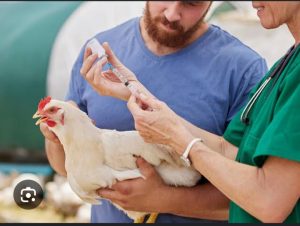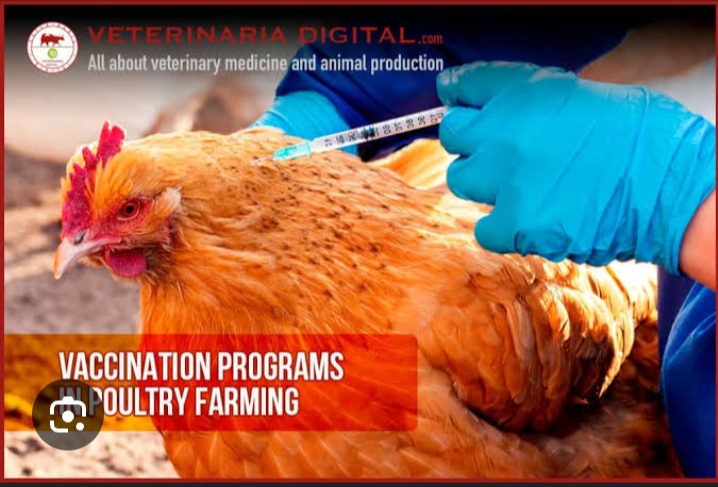Vaccination is one of the most effective methods of preventing infectious diseases in livestock and poultry. It protects animals from deadly infections, reduces mortality, and enhances farm productivity. Implementing comprehensive disease prevention strategies ensures sustainable animal farming.
Click HERE to join our WhatsApp group
Why Vaccination is Important
✔ Prevents highly contagious diseases like Newcastle disease and foot-and-mouth disease.
✔ Reduces the need for antibiotics, minimizing antimicrobial resistance (AMR).
✔ Enhances herd immunity, protecting the entire farm.
✔ Ensures food safety and prevents zoonotic disease transmission.
READ ALSO: Waste Management in Livestock and Poultry Farming
Common Vaccines for Livestock and Poultry

1. Poultry Vaccination Schedule
🐓 Newcastle Disease Vaccine – Given at day-old and repeated every 3 months.
🐓 Gumboro Disease Vaccine – Protects against infectious bursal disease.
🐓 Fowl Pox Vaccine – Given at 6-8 weeks to prevent pox virus infection.
2. Cattle Vaccination Schedule

🐄 Foot-and-Mouth Disease Vaccine – Given every 6 months.
🐄 Brucellosis Vaccine – Given to heifers to prevent abortion.
🐄 Blackleg Vaccine – Protects against fatal bacterial infections.
3. Goat and Sheep Vaccination
🐐 PPR Vaccine – Protects against Peste des Petits Ruminants.
🐑 Enterotoxemia Vaccine – Prevents clostridial infections.
READ ALSO: Feed Ingredients and Their Nutritional Value
Best Practices for Effective Vaccination

✅ Store vaccines properly (cold chain maintenance).
✅ Follow recommended vaccination schedules.
✅ Use sterile needles and proper dosing.
✅ Isolate sick animals to prevent disease spread.
Other Disease Prevention Strategies
1. Biosecurity Measures
✔ Restrict farm access to limit disease introduction.
✔ Clean and disinfect farm equipment regularly.
✔ Quarantine new animals before introducing them.
READ ALSO: Prevention of Disease and Health Management in Poultry farming
2. Proper Nutrition and Hygiene
✔ Provide balanced diets to boost immunity.
✔ Ensure clean water and housing conditions.
✔ Control external and internal parasites.
Conclusion
Vaccination is a cost-effective and essential strategy for disease control in livestock and poultry farming. Combined with biosecurity, proper nutrition, and hygiene, it ensures healthy and productive animals.
READ ALSO: Common Health Challenges in Livestock and Poultry
Livestock and poultry face numerous health challenges that can impact productivity and profitability. Understanding these challenges helps farmers implement effective prevention and management strategies.
Categories of Common Health Challenges
1️⃣ Nutritional Deficiencies…
READ ALSO: Common ways to manage bacteria diseases in poultry
Common ways to manage bacteria diseases in poultry
Managing bacterial diseases in poultry is crucial to ensure the health and well-being of the birds and to maintain a productive and profitable poultry farm. Here are some common ways to manage bacterial diseases in poultry, along with details on each method:…
Click HERE to join our WhatsApp group

